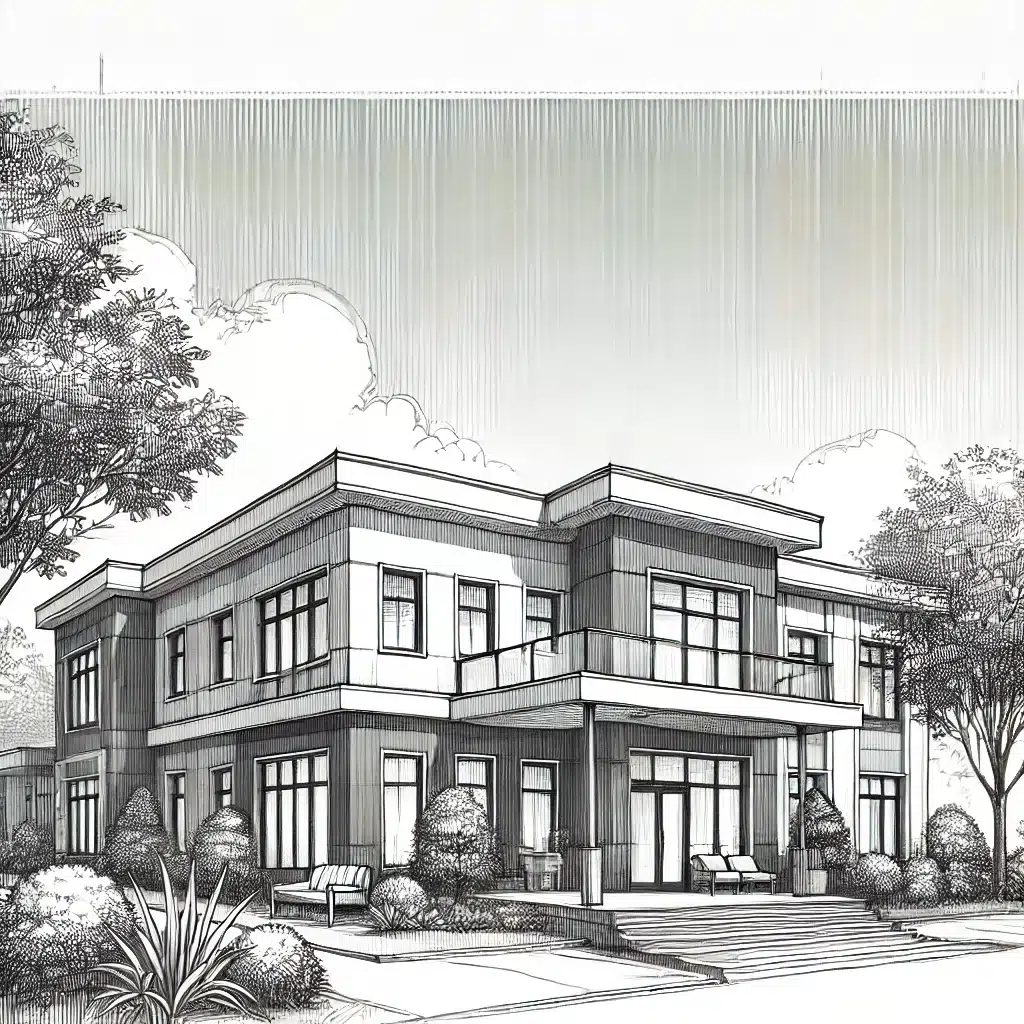Transforming Behavioral Health Facility Development: The Strategic Advantage of Real Estate Partnerships


Developing a behavioral health facility is a complex process that extends far beyond selecting the right location or designing an ideal layout. Critical elements such as general construction, effective cost management, and compliance with healthcare regulations determine whether a project will meet quality standards, remain within budget, and finish on schedule. Partnering with an experienced real estate development team provides the expertise and strategic guidance necessary to ensure project success. Below, we explore the key benefits of such partnerships and how these teams optimize general construction and cost management for behavioral health facility development.
1. Comprehensive Project Planning and Coordination
Behavioral health facility construction requires meticulous coordination to manage contractors, subcontractors, suppliers, and regulatory authorities. Development teams serve as centralized oversight hubs, ensuring seamless execution from start to finish. By creating detailed schedules, tracking milestones, and maintaining open communication across stakeholders, these teams mitigate delays, avoid disruptions, and keep projects aligned with goals. This cohesive management approach ensures timely and efficient progress.
2. Cost Optimization Through Value Engineering
Value engineering is a cornerstone of cost management, focusing on identifying efficiencies in construction methods, materials, and designs without compromising quality. For behavioral health facilities, this might involve selecting durable, cost-effective materials or leveraging construction techniques that minimize labor and resource costs. Additionally, prefabricated modules and other technological solutions streamline processes while maintaining compliance with industry standards. Development teams employ value engineering to balance high-quality outcomes with budget constraints.
3. Leveraging Vendor and Contractor Networks
Strong vendor, supplier, and contractor relationships are crucial to the success of behavioral health facility projects. Development teams bring well-established networks to the table, providing access to high-quality materials, competitive pricing, and reliable service providers. These connections help secure priority delivery schedules, minimize supply chain disruptions, and ensure that projects progress smoothly and efficiently.
4. Proactive Risk Management for Construction Projects
Construction projects inherently involve risks, such as unexpected site conditions, supply chain challenges, and changing regulatory requirements. Proactive risk management strategies, such as conducting comprehensive site assessments and creating contingency plans, are essential to avoiding costly delays. Development teams maintain open communication with stakeholders and regulatory bodies to identify and mitigate potential risks early, safeguarding the project’s timeline and budget.
5. Rigorous Quality Control Processes
The quality of construction is especially critical in behavioral health facilities, where safety, durability, and compliance are paramount. Poor practices can result in operational disruptions, increased maintenance costs, or non-compliance penalties. Development teams ensure rigorous quality control by setting clear standards, conducting regular inspections, and collaborating closely with contractors. This guarantees that every aspect of construction adheres to best practices and creates facilities designed for long-term functionality.
6. Design Optimization for Efficient Construction
Behavioral health facility design directly influences construction efficiency and cost. Simplified designs that minimize material waste and reduce construction complexity lead to significant improvements in project outcomes. Development teams collaborate with architects to optimize layouts, adopt modular designs, and use standardized materials. These strategies streamline construction processes, reduce labor requirements, and ensure that facilities meet both operational and budgetary goals.
7. Navigating Permits and Approvals Efficiently
Obtaining permits and meeting regulatory requirements are among the most time-intensive stages in building healthcare facilities. Delays in this process can derail entire projects. Development teams streamline the permitting process by preparing thorough documentation, addressing potential concerns early, and maintaining strong relationships with regulatory authorities. This proactive approach ensures timely approvals and prevents costly delays.
8. Emphasizing Energy Efficiency and Sustainability
Sustainable construction practices are increasingly important in healthcare facilities, reducing operating costs and environmental impact while enhancing patient well-being. Behavioral health facilities benefit greatly from designs that incorporate energy-efficient HVAC systems, LED lighting, water-saving fixtures, and natural light. Development teams prioritize eco-friendly solutions that create cost-effective and sustainable facilities aligned with modern healthcare standards.
9. Streamlined Handover and Post-Construction Support
The transition from construction to operations is critical in behavioral health facility development. Effective post-construction support ensures operational readiness and addresses immediate challenges. Development teams coordinate final inspections, manage punch lists, and oversee system testing to guarantee a smooth handover. They also provide training for facility managers and offer ongoing support during the early operational stages, ensuring seamless functionality from day one.
10. Accelerating Time to Occupancy
Speed to market is a key success factor for behavioral health facilities. Rapid completion enables earlier patient care and revenue generation, making efficient project timelines essential. Through meticulous scheduling, close contractor coordination, and robust risk management, development teams expedite construction timelines. This focus on efficiency ensures facilities open promptly to serve communities in need.
11. Aligning Construction with Strategic Healthcare Goals
Behavioral health facilities often support broader healthcare strategies, such as expanding services or enhancing patient care. Construction projects must align with these long-term objectives to ensure success. Development teams work closely with healthcare providers to integrate strategic goals into every aspect of the project, from site selection to facility layout. This ensures the finished facility supports growth, innovation, and improved outcomes for both providers and patients.
12. Future-Proofing for Scalability and Expansion
Behavioral health facilities must adapt to evolving demands and accommodate future growth. Strategic planning during construction ensures facilities remain scalable and flexible. Modular designs, provisions for additional wings or floors, and infrastructure that supports emerging technologies are just a few examples of future-proofing strategies employed by development teams. These measures allow facilities to evolve with the needs of the communities they serve.
Partnering with an experienced real estate development team is invaluable when building behavioral health facilities. Their expertise in construction planning, cost management, quality control, and regulatory compliance ensures projects are completed on time, within budget, and to the highest standards. With a focus on efficiency, sustainability, and long-term scalability, these teams deliver facilities that meet both present and future needs. Connect with ZLD Partners today to learn how we can help you optimize construction and cost management for your next behavioral health facility.

